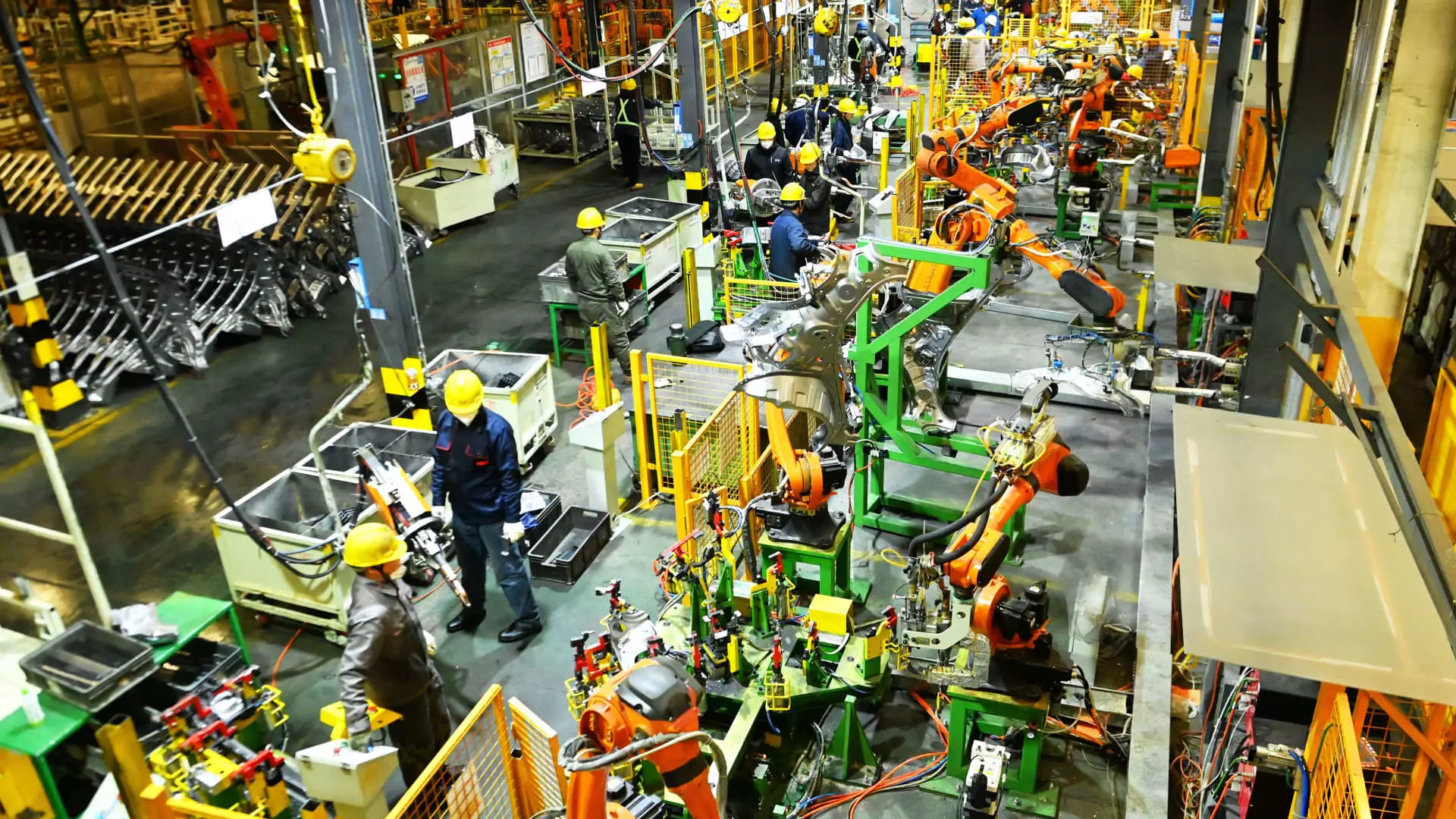In the rapidly evolving landscape of American trade policy, President Trump’s administration appears to be inching towards a precarious tightrope walk with the automotive industry. As speculation mounts regarding the possibility of exempting certain auto parts from the looming tariffs set to take effect in early May, it is essential to dissect the implications of these moves. The societal reverberations triggered by such decisions could either bolster the beleaguered automotive sector or plunge it deeper into a quagmire of upheaval.
The reported exemptions are being touted as a potential olive branch, yet they stem from a foundation built on chaos. The tariffs imposed to counter the influx of fentanyl production from China reflect a broader narrative of Trump’s aggressive stance on trade, which has often felt more reactionary than strategic. While the Trade Administration asserts that these tariffs aim to recalibrate the balance of trade, many automakers are left scrambling for clarity amid a fog of uncertainty. It poses a genuine question: can a business truly thrive in an environment where the rules are constantly in flux?
Corporate Fatigue and Lobbying Efforts
As the Trump administration navigates this thorny issue, the automotive industry’s innate capacity for resilience is put to the test. Automakers and policy groups — typically scattered and fiercely competitive — have united in a striking show of solidarity against what could be crippling tariff hikes. This rare occurrence underscores an urgency that is palpable in boardrooms across the nation. Such collective lobbying efforts for tariff relief signal not only an immediate threat to profits, but a broader sense of vulnerability that has swept through the heart of American manufacturing.
Magnifying the pressing nature of this issue is the fact that many suppliers are already stretched thin, navigating financial distress that makes absorbing additional costs fundamentally untenable. When General Motors CEO Mary Barra articulates the need for “clarity and consistency” in trade policy, one can’t help but sense the underlying desperation of a sector wrestling for stability. Amidst the cacophony of shifting tariffs and trade negotiations, the industry’s call for predictable regulations powerfully echoes the sentiments of countless employees, suppliers, and stakeholders who rely on the automotive ecosystem’s health.
The Political Game at Play
In the Oval Office, statements intertwining fiscal strategy with national pride abound. Trump’s dismissal of foreign vehicles — as he quipped that he wanted Americans to “make our own cars” — highlights the tension between protectionist sentiment and the global economic realities that American companies face. The American automotive industry thrives not merely on domestic components but on a robust network of international suppliers and manufacturers. This paradox poses an integral challenge; by fortifying tariffs, Trump risks isolating American companies in a global market that demands collaboration and cross-border partnerships.
Moreover, placing a heavy tax on imported vehicles could inadvertently trigger retaliatory measures, launching a trade war that could jeopardize production and jobs. Fluctuating tariffs may seem like a beneficial tool to ensure industries remain competitive, but the historical lessons of economic isolationism warn us of the long-term pitfalls. The illusion of protection could lead to a lose-lose scenario where both American workers and consumers suffer.
The Industry’s Test of Resilience
In the face of these tumultuous shifts, it becomes clear that the American automotive industry is being tested like never before. As companies brace for potential increases in tariffs while grappling with existing pressures, the resultant atmosphere feels charged with anxiety and anticipation. Will these exemptions provide the relief that manufacturers so desperately crave, or will they merely serve as a band-aid over a deeper, festering wound?
In this precarious environment, the call for consistency is more than just a rallying cry; it is a lifeline. Clarity is needed not just for corporate giants like General Motors but also for the countless workers and families who depend on a thriving automotive industry. The unfolding narrative is not just about business; it represents the broader economic fabric of America—an intricate tapestry that thrives on innovation fostered by reliable governance and a commendable commitment to fair business practices. The uncertainty looming over tariffs may yet turn into an opportunity for collaborative growth if handled with foresight and strategic consideration. As history teaches us, it is often in the crucible of adversity that industries find their greatest opportunities for renewal.



Leave a Reply